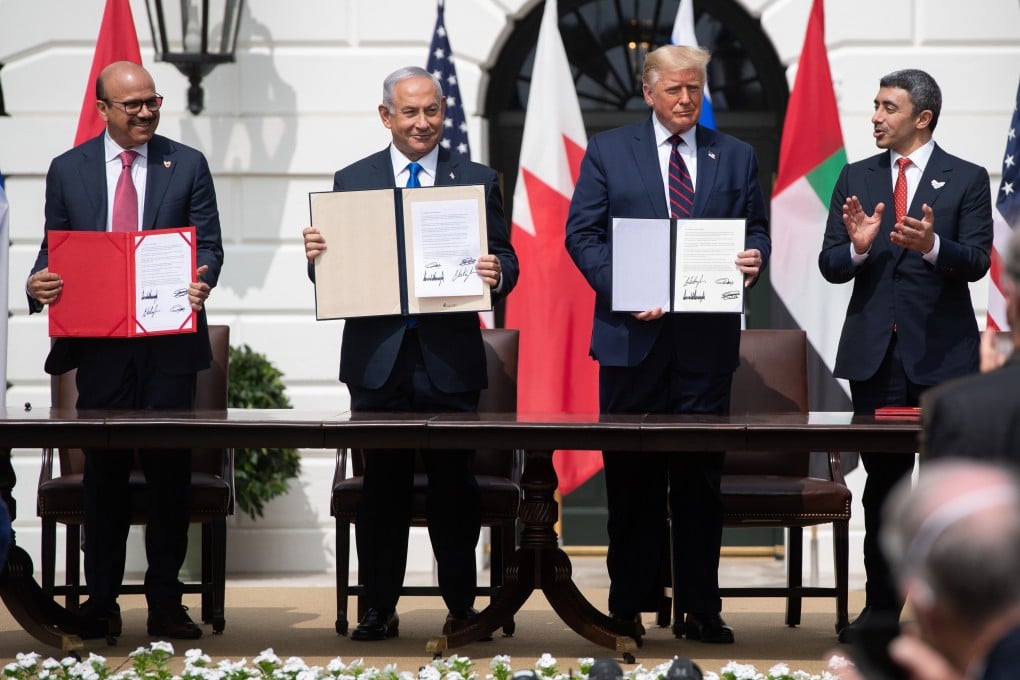Advertisement
Opinion | How Donald Trump’s Middle East deal will affect China’s arms sales in the region
- The Abraham Accords bring several US allies closer and recognise that the threat posed by Iran is a greater driver than their historical antagonism
- Should the US liberalise the sale of its most advanced military equipment to the region, Beijing would lose a key selling point for its own arms sales
Reading Time:3 minutes
Why you can trust SCMP

The Abraham Accords signed by the United Arab Emirates, Israel and Bahrain are momentous for the Middle East. The UAE and Bahrain are the first Gulf countries to agree to normalise relations with Israel and only the third and fourth Arab countries to do so, after Egypt and Jordan.
But in the wake of the pomp of the signing ceremony, attention has moved beyond symbolism and towards more practical matters. Chief among them are the geopolitical effects of the agreements.
US President Donald Trump was eager to advertise the agreement as evidence of his administration’s skill in bringing estranged partners to the table, and suggested that it may lead to peace in the Middle East. This is perhaps a little optimistic, but there are likely to be two immediate consequences.
Advertisement
First, the rapprochement between Arab states and Israel will naturally ease tensions between these two sides (although not between Israel and Palestine). Second, and perhaps just as important, is that these countries have effectively agreed to overcome their differences to focus on their shared strategic goals and threats.

06:04
Why can't Iran and the US get along?
Why can't Iran and the US get along?
Chief among them is Iran. In effect, therefore, the agreements bring several US allies in the region closer, and recognise that the threat posed by Iran is a more substantial driver than their historical antagonism.
Advertisement
Advertisement
Select Voice
Select Speed
1.00x
